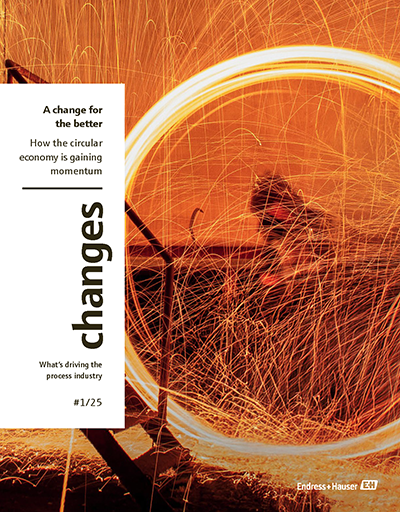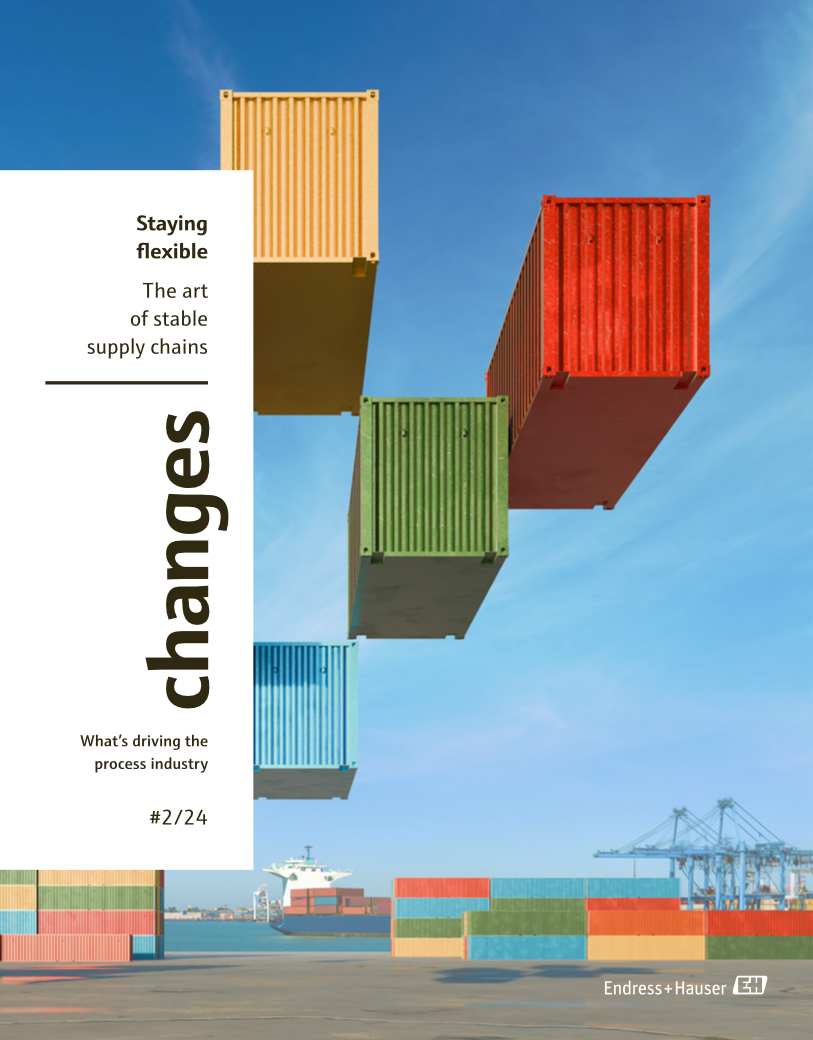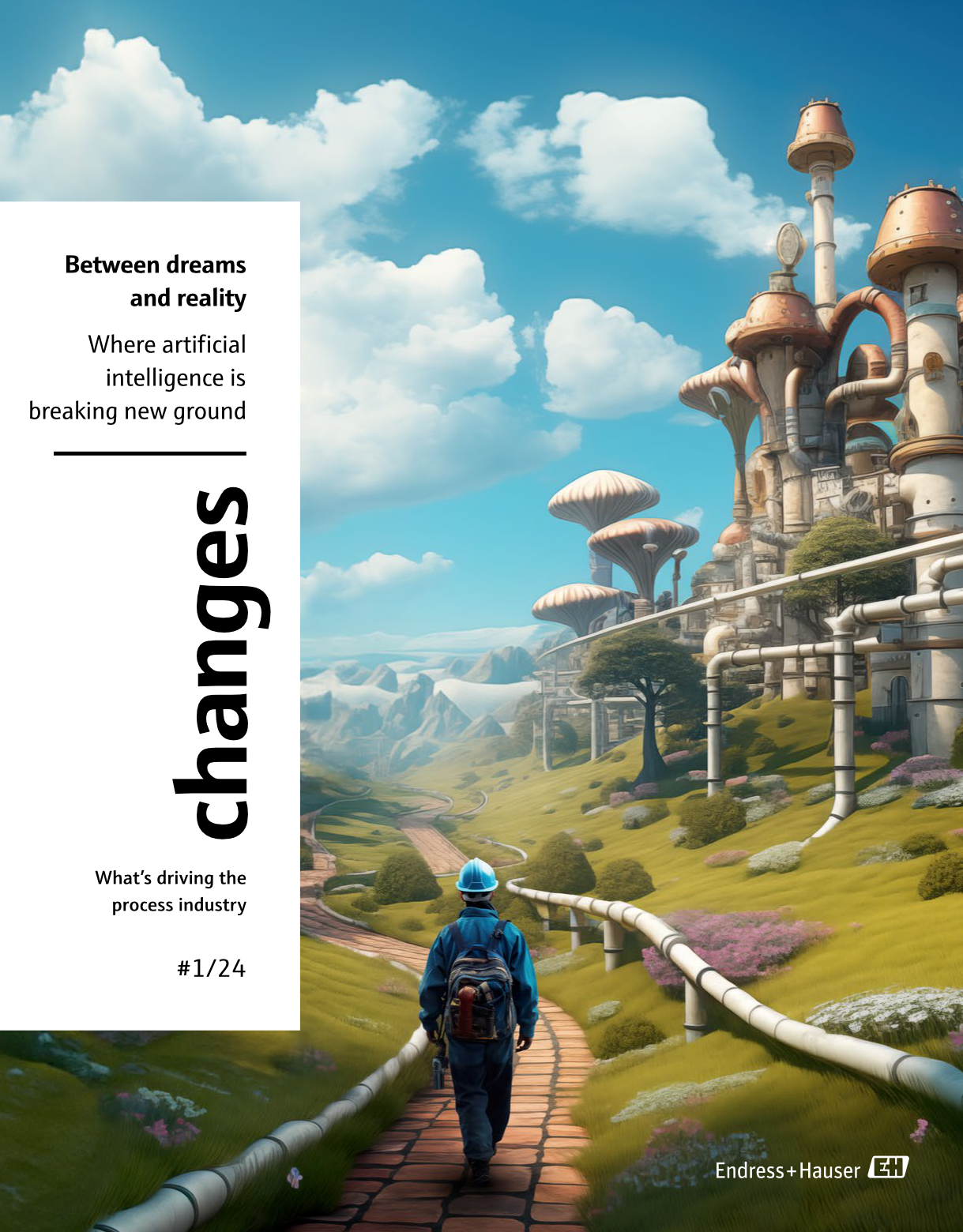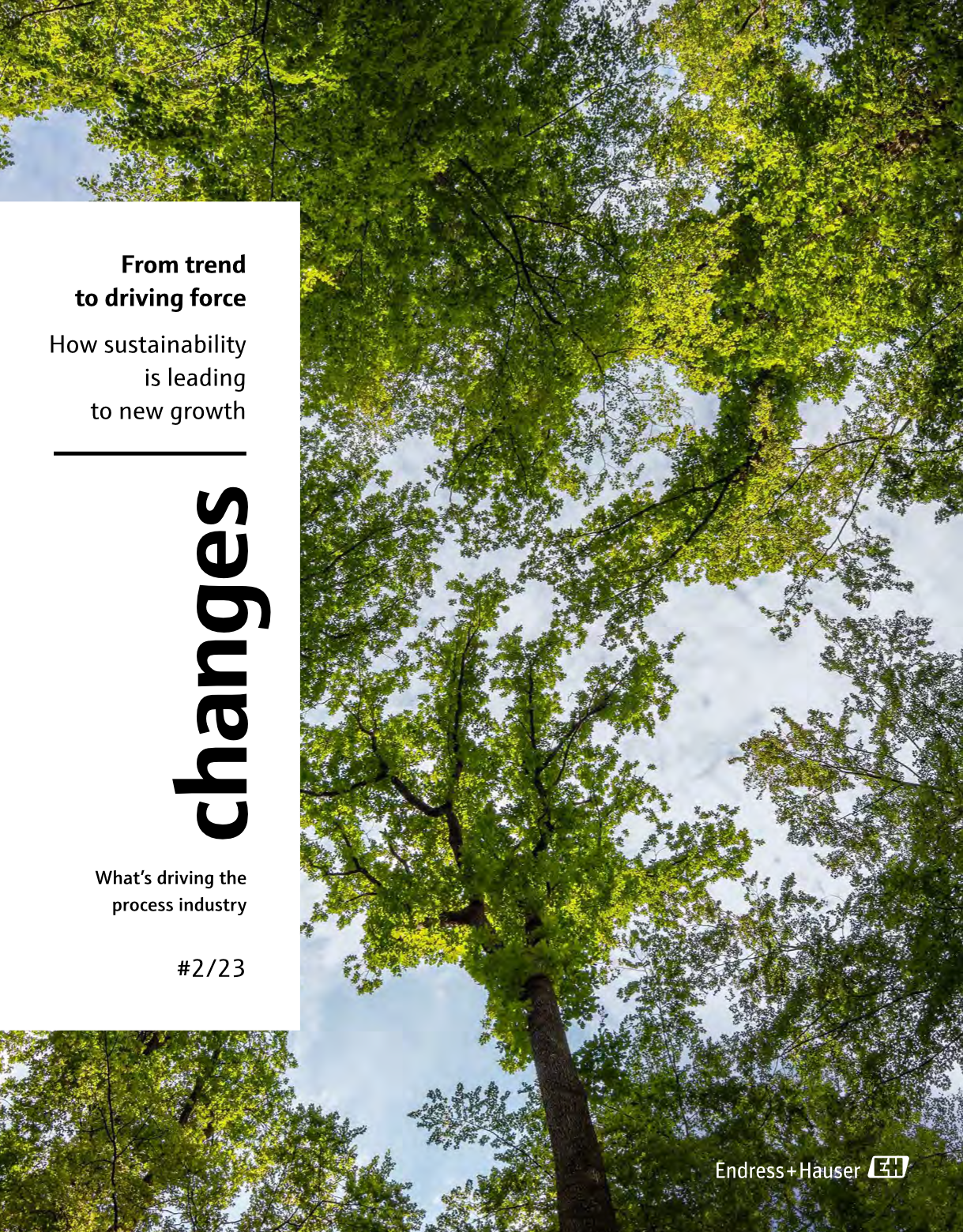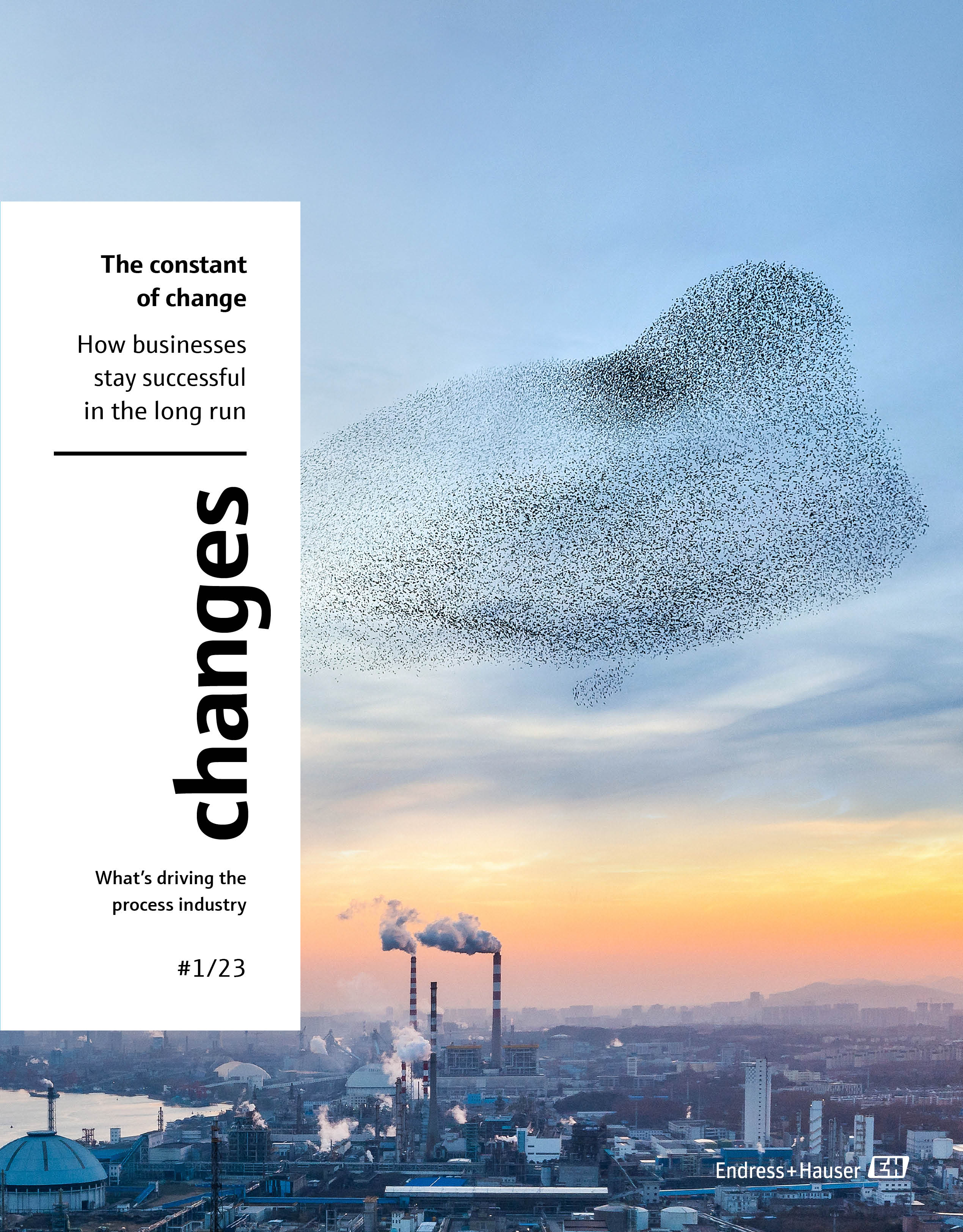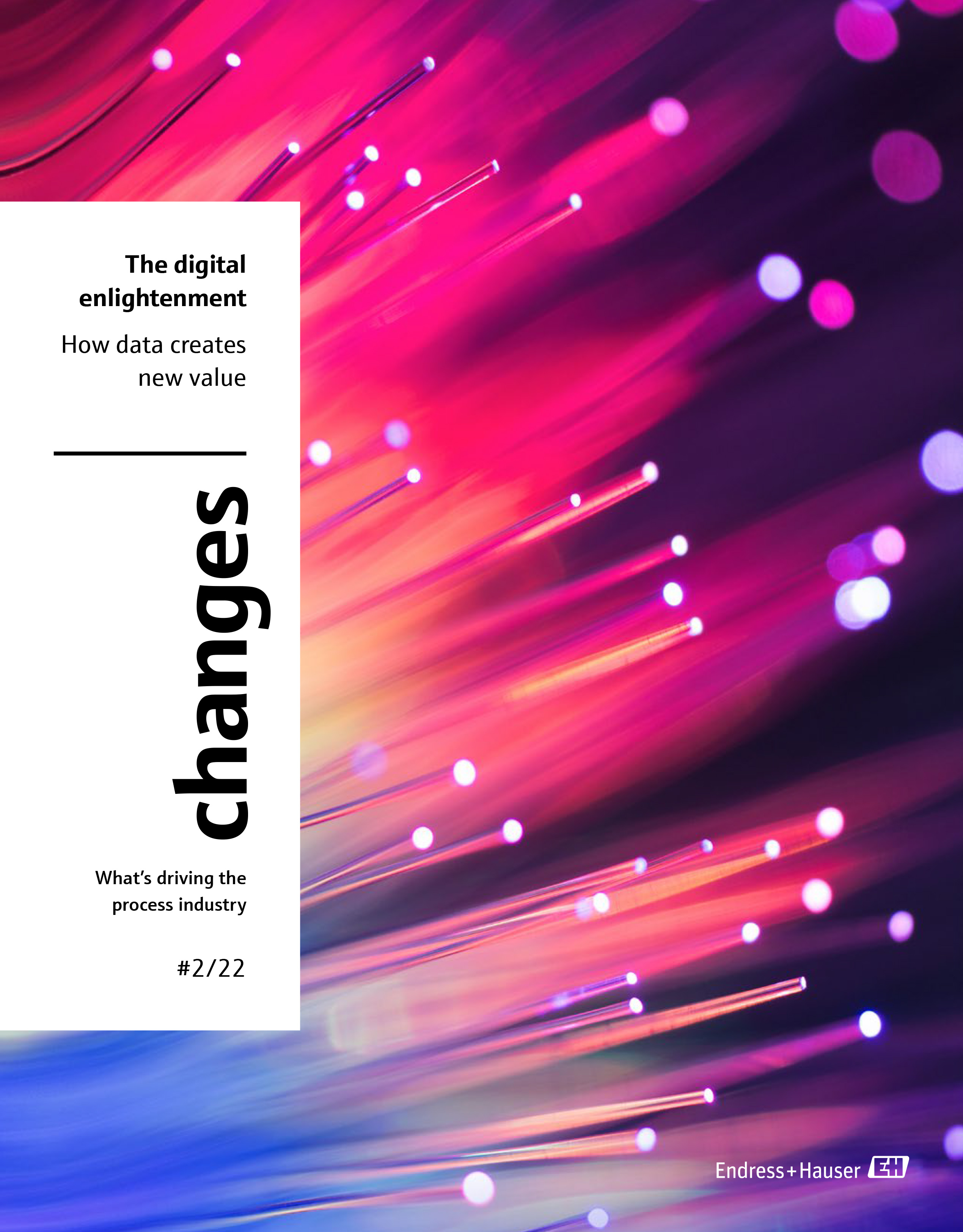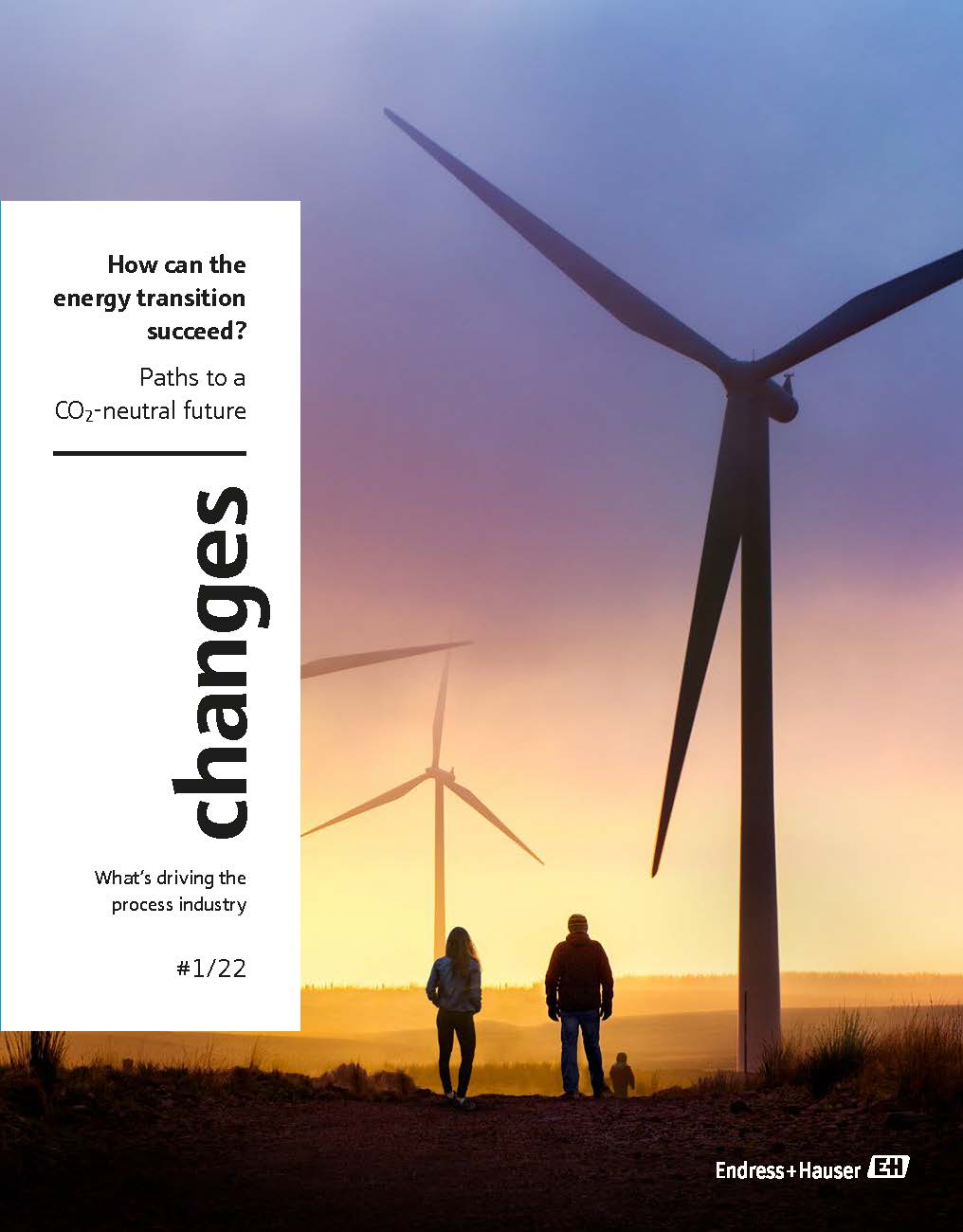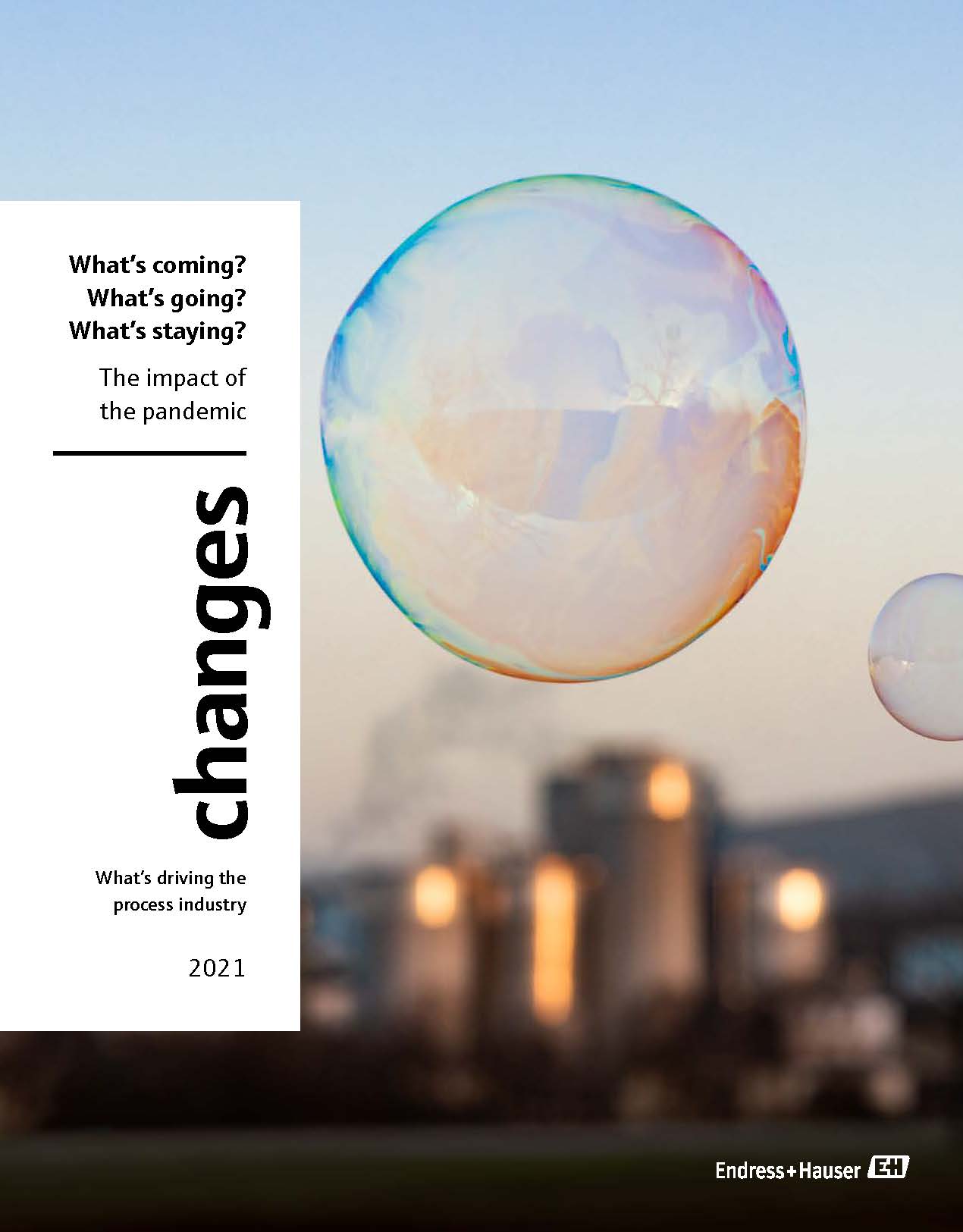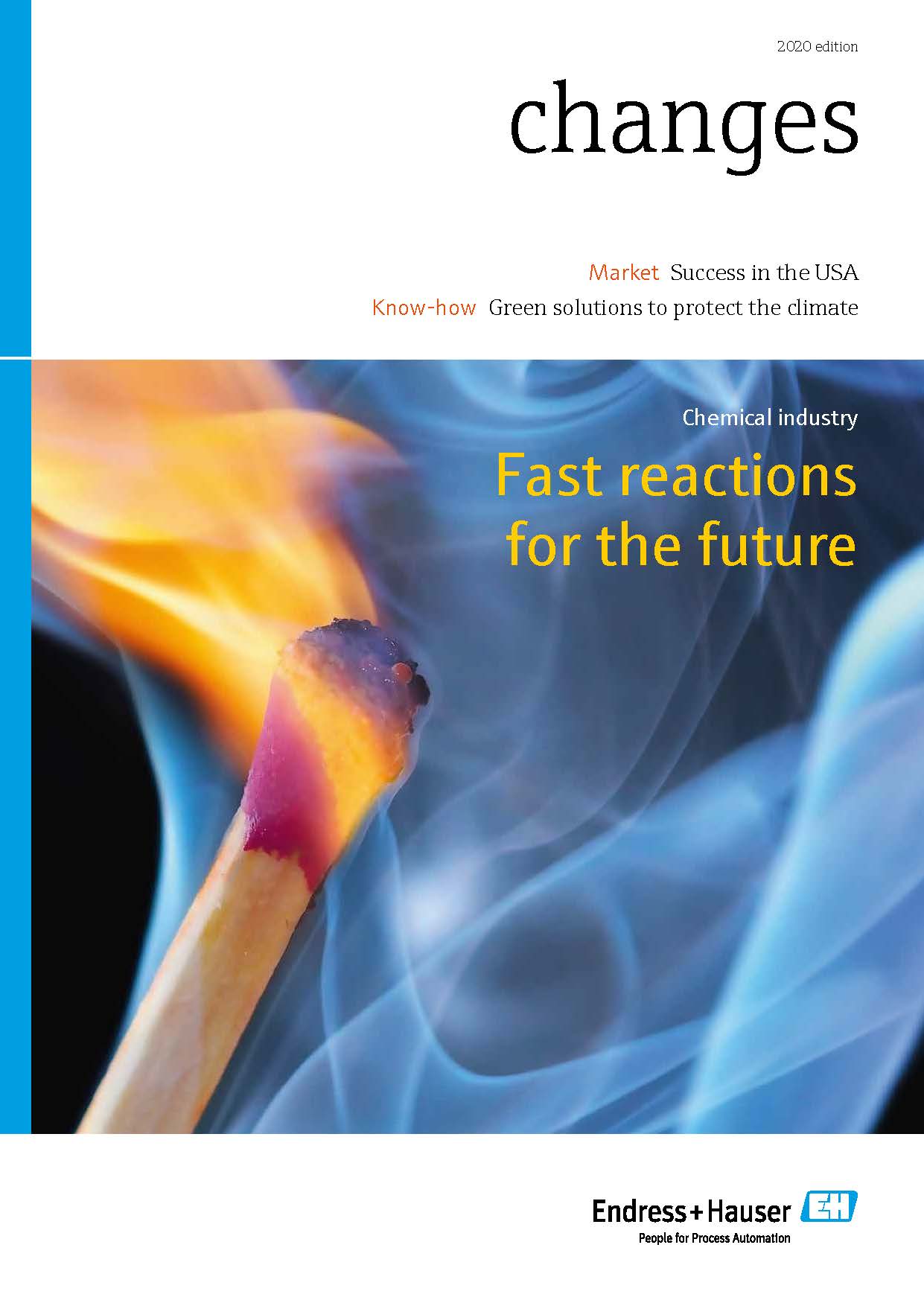The bridge- builder
Jawad Tayyub and his team are developing AI solutions for next-generation measuring devices and advanced production technology. He is championing the opportunities offered by the new technology and is calling for a dialogue between researchers and practitioners.
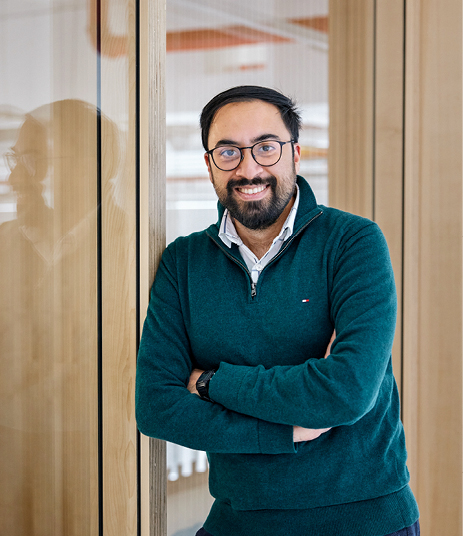
“Many people see artificial intelligence as something creepy or even threatening. They fear it could take their jobs away one day, but I don’t see that happening any time soon. AI can help humans immensely. For example, it has the potential to handle some of our tasks – especially the unpleasant and monotonous ones. What it can’t do, though, is replace our creative thinking and complex decision-making.
As an AI research scientist at the competence center for level and pressure measurement technology, I develop AI algorithms for our production and next-generation measuring technology. As part of the Group-wide AI knowledge community, I also want to raise awareness throughout Endress+Hauser of the opportunities that the technology offers us.
There’s one thing I would like people to know: AI isn’t voodoo, it’s elevated statistics. AI-based large language models such as ChatGPT can provide precise responses to questions because we humans have provided them with answers to similar questions. We have written down tons of information online, and a generative model simply utilizes it to learn the statistical patterns on which language is based. When we ask the model questions, it uses the patterns it has learned to generate responses by stringing one word after another. However, it often lacks an understanding of the meaning and the underlying rules that govern the content it produces.
One example of this is multiplication. Simple calculations like six times six are no problem for the models. But if you ask them to multiply two five-digit numbers, they get it wrong. Why? Because they haven’t been exposed to enough examples of such problems to learn how to produce the right answers.
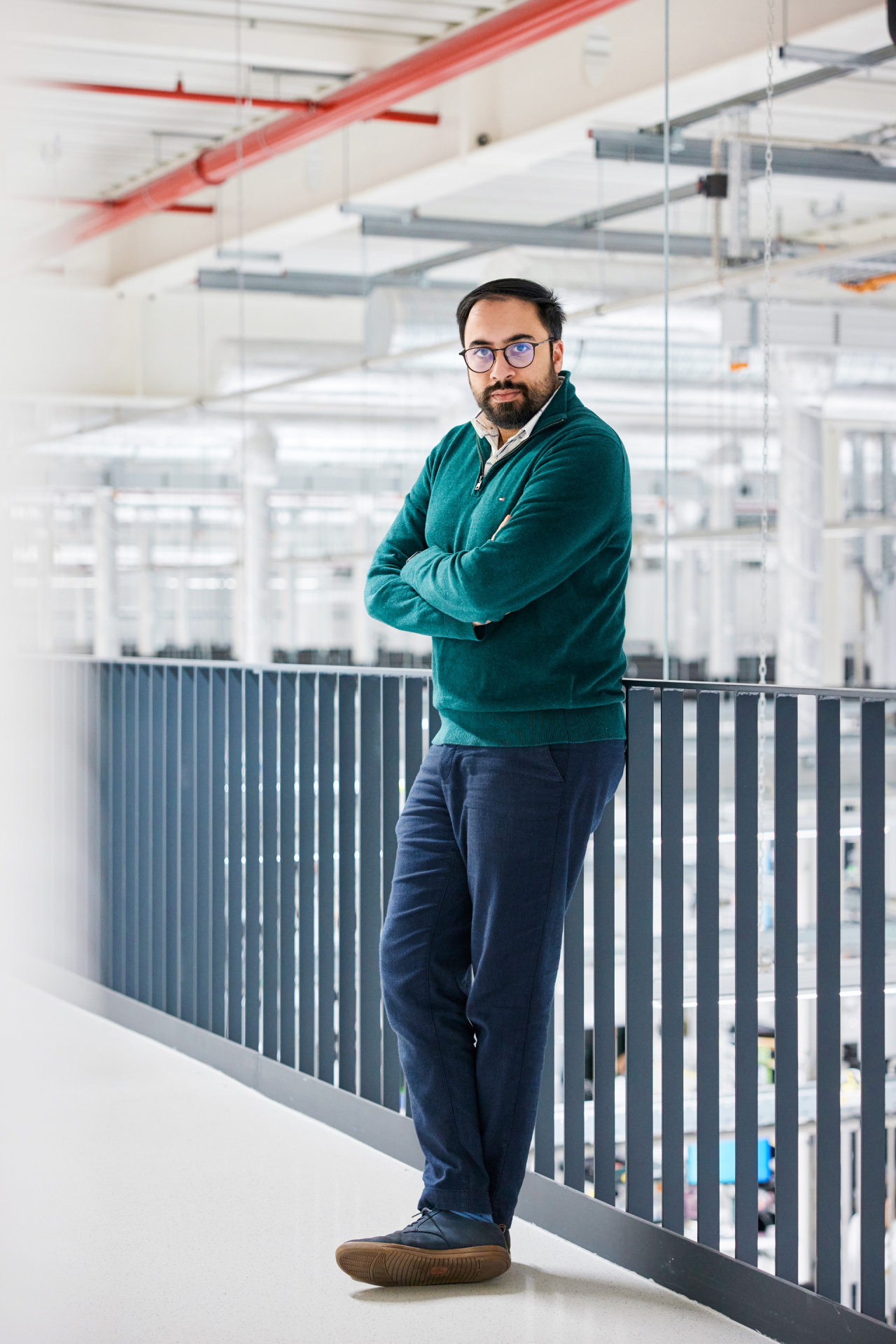
Dr Jawad Tayyub (34) works as an AI research scientist at the Endress+Hauser competence center for level and pressure measurement technology. The computer scientist and expert in artificial intelligence previously conducted research at the University of Leeds in the UK.
That said, AI is capable of helping us in all areas of the company, taking over laborious tasks such as checking products for visual defects and analyzing large volumes of texts. To make that possible, though, we need sufficient quantities of the right data to train AI on. This is particularly true in the development domain, where everything is based on standards – some of which span hundreds of pages. By adapting a large language model, we can enable colleagues to quickly extract the desired information from said documents.
No matter what the challenge is, my team and I find the optimal algorithm for the corresponding use case. Complex production activities, in particular, require very sophisticated and highly bespoke solutions. For example, we recently developed a new neural network architecture for our colleagues in that sector. This model, inspired by neural networks used in the medical domain, detects the edge of a weld seam between two metals automatically and precisely.
AI is a new, up-and-coming technology. Every week brings new algorithms and models with it. We now have more than 200 of them. I collaborate regularly with professors from Germany and the UK, attend conferences and supervise students’ theses. It’s important that we expand this transfer of knowledge in order to be at the cutting edge and find better and better solutions.”
Published 05.09.2024, last updated 16.09.2024.
Dive into the world of the process industry through new exciting stories every month with our «changes» newsletter!
